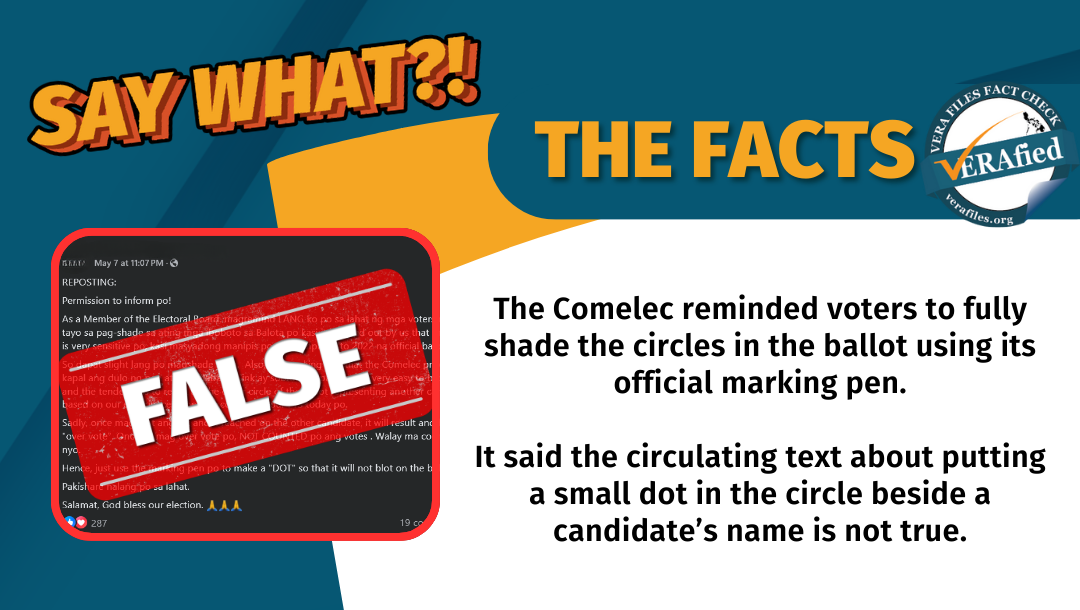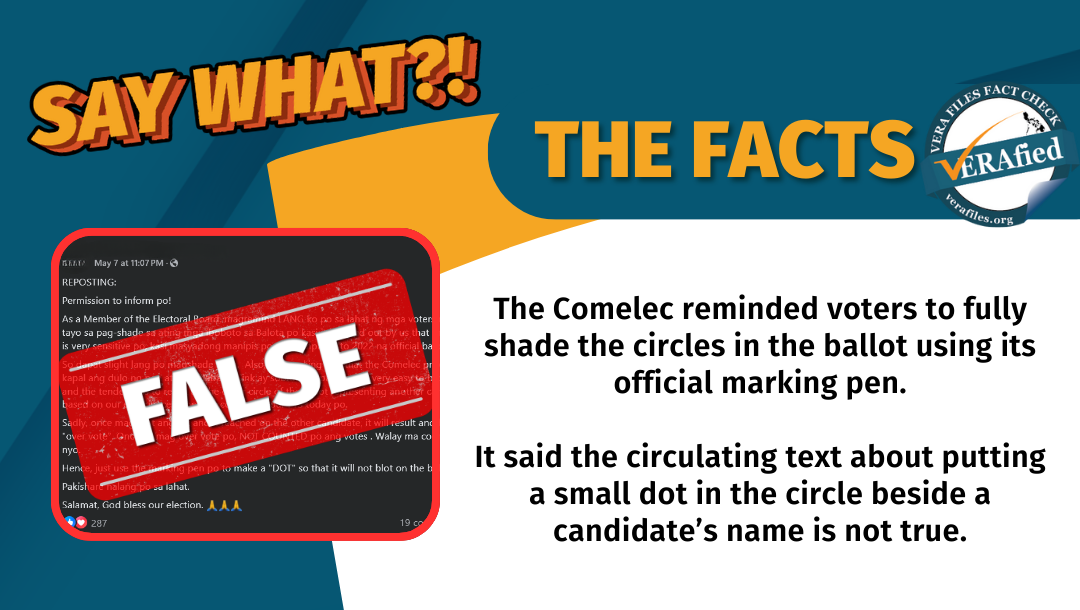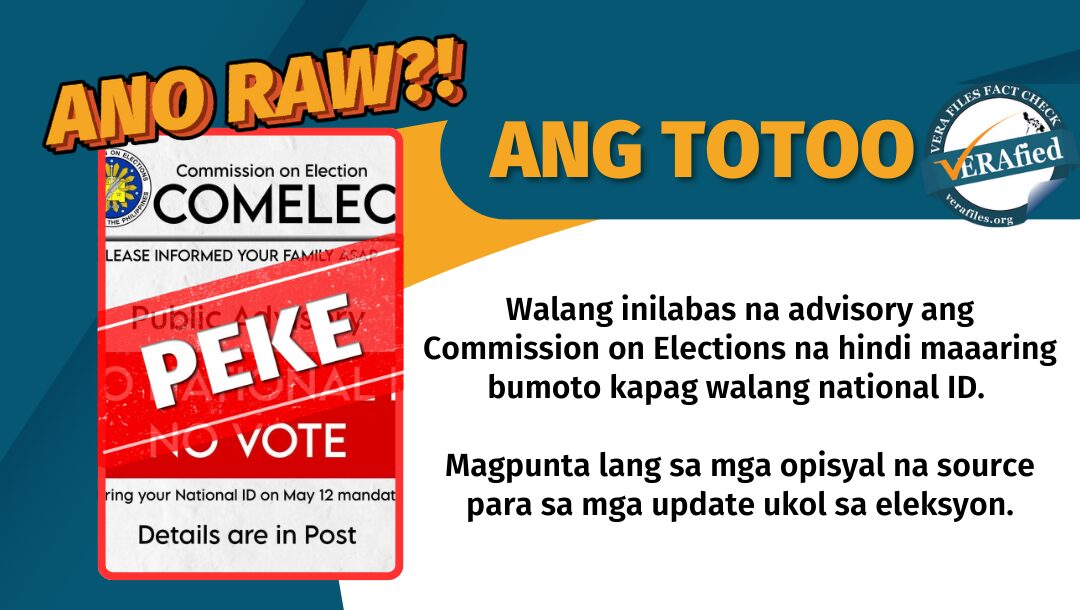A copy-and-pasted text message is spreading on several social media platforms and private messaging apps warning voters to be careful when shading their ballots on May 12 as these were made using “sensitive material”. The Commission on Elections said this is false.
Circulating as early as May 7, this text message has been reposted by social media users. It partially reads:
“As a Member of the Electoral Board, magremind LANG ko po (sic) sa lahat ng mga voters na be careful po tayo sa pag-shade sa ating mga iboboto sa Balota po kasi it is found out by us that the official ballot is very sensitive po, kasi masyadong manipis po sya compared to 2022 na official ballot
(I just want to remind all voters to be careful when shading our ballots because we found out that the official ballots are very sensitive, it is very thin compared to the 2022 official ballots).”
The rest of the text said that it is recommended to simply place a “dot” using the official marking pen so the ink will not bleed through the paper and accidentally mark the names of the party-lists on the reverse side of the ballot.
“Fake news,” said Comelec in a May 8 Facebook (FB) post, adding that the commission gave no such advice.

“The correct way to vote is to fully shade the red circle beside the name of the candidate using the official marking pen provided by the Comelec,” it said in Filipino.
Comelec further assured the public that the official ballots passed “rigid quality assurance” tests of the poll body and the National Printing Office. “These [ballots] are ink-absorbent and compatible with the official marking pen,” it said.
Comelec further warned the public that spreading such false information is deemed an election offense under the Omnibus Election Code.
At least seven online users spread this text, collectively garnering over 500 reactions, 40 comments and 430 shares.






